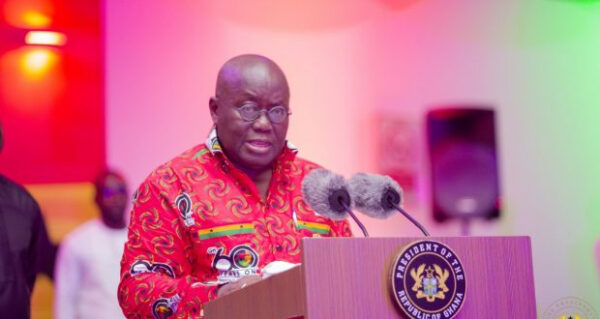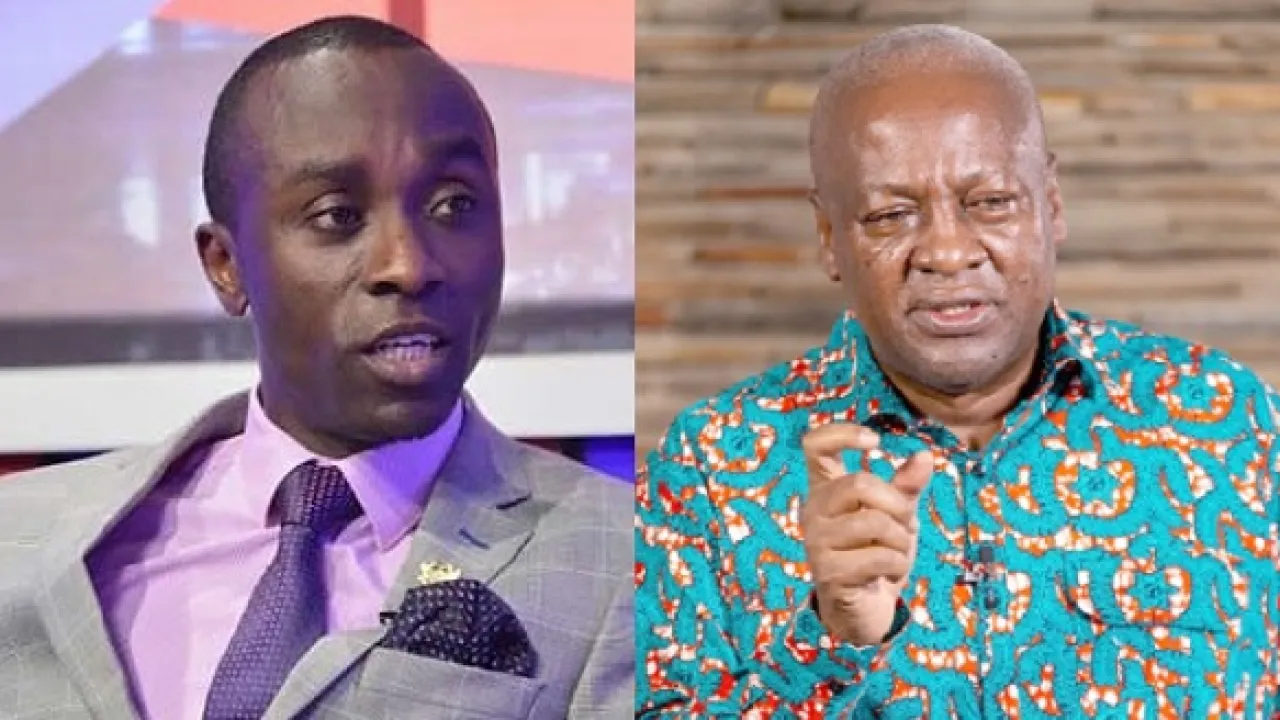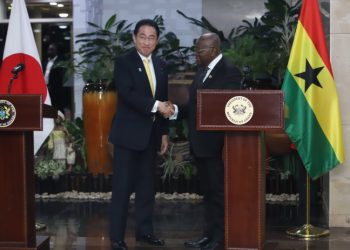GHANA BEYOND AID; IS IT FEASIBLE OR A WISHFUL THINKING?
Ghana was formerly known as the Gold Coast. On 6 March 1957 Kwame Nkrumah declared the country’s independence. On 1 July 1960, Ghana became a commonwealth republic with Nkrumah as the first President of the country. The flag of Ghana consists of the colours red, gold, green, and the black star.
In 1966 its first president and pan-African hero, Kwame Nkrumah, was deposed in a coup, heralding years of mostly-military rule. In 1981 Flight Lieutenant Jerry Rawlings staged his second coup. The country began to move towards economic stability and democracy.
In April 1992 a constitution allowing for a multi-party system was approved in a referendum, ushering in a period of democracy. A well-administered country by regional standards, Ghana is often seen as a model for political and economic reform in Africa.
A Ghana Beyond Aid is a prosperous and self-confident Ghana that is in charge of her economic destiny; a transformed Ghana that is prosperous enough to be beyond needing aid, and that engages competitively with the rest of the world through trade and investment.”
Ghana beyond aid is achievable:
As the sages say that once there is a will there is a way, the governing New Patriotic Party(NPP) are very optimistic that Ghana can be free from debt and over dependency on foreign aid. The party believes with all plans put together if carefully rolled out, would be seeing the country journeying on a road of self-reliance.
Ghana as a country has been a beacon of hope among its African countries due to its rich natural resources and human capital. However, Ghana is still wobbling economically despite its buoyant natural heritage.
In wake of this there has been series of plans and consultations on how to rescue and save the situation making the country a self-reliant one with a strong economy. As a result of this the incumbent new patriotic party as part of its plans categorically spelt out plans on how to save the economy by launching a strategy called Ghana beyond aid (GhBA) an initiative to correct the economic deficits.
However, the country has since been divided as some are of the view that Ghana beyond aid is not feasible but a mere rich talk. According to such people, their claims are on the fact that;
- Ghana don’t have national policy to regulate the in-actions and actions of government that rules the nation.
- Political leaders have not shown any seriousness that we want economic independence. They keep borrowing.
- Political leaders have mortgaged the future of our country to the developed countries.
- Previous and current government have not shown any sign of commitment to fight corruption and hold public officers accountable.
- Lack of industrialization agenda.
- Lack of patriotism on the part of citizenry.
Abstract
In recent time, there has been rising interest among lower-middle income countries (LMICs) to reduce their dependence on donor resources, framed normatively as ‘beyond aid’. However, the populace perceptions about beyond aid narratives remain under-studied.
Overdependence
Ghana has for years overly relied on international grants and loans to undertake most developmental projects. Such grants always come with strict conditions with huge interest which continually makes the country indebted to its lenders. Such monetary grants include International monetary fund (IMF).
In the 2001, during the reign of ex-president John Agyekum Kuffour Ghana decided to apply for HIPC relief on the condition that it be absolved of its debt to the United Kingdom upon reaching the Decision Point. Over the next five years, debt fell by about 65%; primary school graduation rose by almost 50%; GDP rose by a sum of over 30%.
WHAT IS GHANA BEYOND AID?
A national transformation agenda. Ghana Beyond Aid is a national transformation agenda comprising a vision of the Ghana we want and the mindset and behavioural changes that we Ghanaians commit to make in order to pursue that vision. The vision calls for transforming our economy, which is now based mainly on the production and exports of raw materials, to one based on manufacturing and high value services; an economy that provides opportunities, jobs, and prosperity to all Ghanaians.
The mindset and behavioural changes required are embodied in the Ghana Beyond Aid Charter. Poverty in the midst of plenty. As a nation, we are blessed with a smart, youthful, and enterprising population. Our country is also well endowed with many natural resources such as gold, bauxite, iron ore, diamonds, oil, natural gas, timber, cocoa, water, fertile land etc.
The truth, however, is that the state of our nation does not bear out that we have these natural endowments. Poverty continues to be our lot. Mismanagement, corruption and high fiscal deficits have become the hallmarks of our economy, which we finance through borrowing and foreign aid.
In his address to the nation on the occasion of Ghana’s 61st Independence Day celebration, the President, noted this paradox and outlined a vision of a Ghana we can and should strive to build: “It is time to pursue a path to prosperity and self-respect for our nation.
Ghana Beyond Aid is a prosperous and self-confident Ghana that is in charge of her economic destiny; a transformed Ghana that is prosperous enough to be beyond needing aid, and that engages competitively with the rest of the world through trade and investment.”
Pursuing the vision requires high and efficient investments in infrastructure, education and skills, scientific and technological capability, which in turn require policies and institutions to significantly raise domestic revenue and savings, attract foreign investments, and to create an environment where businesses thrive. Though very ambitious, the Ghana Beyond Aid vision is achievable.
Other nations with even fewer resources have done it. However, we are not going to achieve the vision of a Ghana beyond aid by just talking about it. We have to DO something about it! We have to do things differently; business as usual will not take us to a Ghana Beyond Aid. This is where the second aspect of the Ghana Beyond Aid agenda comes in: the need for a paradigm shift in mindset, attitudes and behavior in order to successfully pursue the vision.
As the President noted in his address: “To get to a Ghana Beyond Aid, we will have to harness effectively our own resources, and deploy them creatively and efficiently for rapid economic and social transformation. This will require hard work, enterprise, creativity, and a consistent fight against corruption in public life. It will also require that we break from a mentality of dependency and adopt a confident can-do spirit, fueled by love for our dear country, Ghana. We cannot subordinate the common good to build a prosperous nation for the selfish interest of a few.”
Ghana Beyond Aid is about Transforming and Growing out of Dependence on Aid; not about Rejecting Aid We recognize that the economic transformation and growth of our economy that will make us prosperous and move us beyond aid will have to be financed primarily by domestic resources and also by foreign private investment. But aid still has an important and welcome role to play. Ghana Beyond Aid has two important implications for aid and our relations with development partners.
First, we will pursue a clear strategy for economic transformation and we will insist that aid be firmly aligned to it. Second, there are certain basic services, such as basic education, health, sanitation and water resources, that after62 years as an independent nation, we need to cater for ourselves without stretching out our hands to donors. This is important for our self-respect as a nation.
Further, dependence on donors for such basics has tended to have the unfortunate effects of absorbing an inordinate amount of the time of our officials and distorting our national socio-economic priorities. So, the Ghana
Beyond Aid agenda includes a target to steadily increase Ghana’s contribution to basic public services while encouraging donors to re-orient their programmes to strongly support our economic transformation so as to hasten the time when we no longer need any aid, and in fact would be in a position to offer assistance to some of the poorer countries on our continent.
Aid comes in two broad forms: grants, which we do not have to repay, and concessional loans (i.e. loans priced significantly below market rates, with concessionary/grant element of 35 percent or more, such as loans from the African Development Bank and the World Bank, among others).
For the three years from 2016 to 2018, aid (the sum of grants and concessional loans) averaged 5.7 percent of Government of Ghana budgetary expenditure. If we consider only grants, the average was 3.2 percent. These numbers have been on a declining trend, and for the year 2018, they were 3.1 percent for aid and 2.0 percent for grants.
Ghana Beyond Aid is the vision of H.E. President Nana Addo Dankwa Akufo-Addo to build a Ghana where everyone has access to education, training, and productive employment; where no one goes hungry and everyone has access to the necessities of life including good health care, water, sanitation, and decent housing in line with the Sustainable Development Goals (SDGs).
The achievement of this vision based on 2 key pillars:
- the Ghana Beyond Aid agenda is a National Agenda, not a Government of the day agenda;
- the Ghana Beyond Aid agenda focuses on values, mindset and attitudinal changes that condition the environment for pursuing development, rather than a list of projects to be implemented.
By this initiative, the President’s vision is to ultimately transform Ghana into an aid-free country. The emphasis is to mobilize the energy, creativity and resources of business, labour, civil society, traditional leaders and all key stakeholders in society in creating a holistic world-class investment climate that would allow Ghana to partner meaningfully with the West in development and trade.
The agenda lays due emphasis on the “software” underpinnings of development – values, mindset, attitudes and behaviour of citizens. It is believed that these are the factors that when developed in the positive, would make the difference in the execution of plans and programs of the vision of Ghana Beyond Aid. The realization of a nation that is wealthy, inclusive, sustainable, empowered, and resilient is the ultimate aim of H.E. President Akufo-Addo’s vision.
According to stated by the president building a Ghana beyond aid has been his clarion call to Ghanaians since his assumption of office.
Fellow Ghanaians,
“It is my firm conviction that we can, and should, make this beautiful country of ours more prosperous and improve the quality of life of every Ghanaian. We can, and should build a country where everyone has opportunities to develop to their fullest God-given potential; a Ghana where everyone has access to education, training, and productive employment; a Ghana where no one goes hungry and everyone has access to the necessities of life including good health care, water, sanitation, and decent housing in line with the Sustainable Development Goals (SDGs).
Indeed, we can, and should, build a Ghana that is prosperous enough to stand on its own two feet; a Ghana that is beyond dependence on the charity of others to cater for the needs of its people, but instead engages with other countries competitively through trade and investments and through political cooperation for enhanced regional and global peace and security. We can do this, because we are a nation of smart, dedicated and hard-working people; a nation blessed with abundant natural resources, and a nation that has maintained peace and political stability and has earned international respect and goodwill.
All we need is a clear strategy and a firm collective will to pursue this goal, harnessing and deploying our resources efficiently and effectively, and embracing the discipline and change in mindset and attitudes that will enable us to do things differently and in a better way.
Simply put, my Fellow Ghanaians, we can, and should, build a Ghana Beyond Aid. This has been my clarion call to you, Ghanaians, since you accorded me the highest privilege of electing me as your leader. Indeed, a significant part of my address to the nation on our 61st Independence Day celebration on 6th March, 2018 was devoted to the theme of Ghana Beyond Aid. Three months after that, in June 2018, I inaugurated the Ghana Beyond Aid Charter Committee.
This Committee, chaired by the Senior Minister, reached out beyond Government to include Academia, Business and Labour. The Committee was also charged to consult widely across all sections of Ghanaian society in order to address two issues:
- (a) develop the broad aspiration of Ghana Beyond Aid into a clear vision and strategy that can make Ghana prosperous and take it beyond aid in the shortest possible time; and
- (b) identify the key changes in values, attitudes, and behaviour that we Ghanaians have to either reinforce or change in order to ensure that we can effectively implement the strategy.
The Committee has consulted widely with Ghanaians, and it has synthesized the insights gathered into a simple, but compelling strategy that can take us beyond aid, backed by a Charter consisting of key 6 fundamental values that almost all Ghanaians will agree we need to embrace if we are to pursue seriously the Ghana Beyond Aid vision.
I need not mention the fact that this is not the first time that Ghana has announced an ambitious strategy or plan to transform our country economically and socially. We are all aware of the development plans launched by various governments over the years that fell far short of their ambitious aims for one reason or the other. So, what is different this time?
There are two very important differences this time. Having reviewed carefully the history of our past efforts, and having consulted widely with Ghanaians, the Committee has recommended—and I have endorsed—an approach based on 2 key pillars:
- (a) The Ghana Beyond Aid agenda should be a National Agenda, rather than a government agenda; and
- (b) The Ghana Beyond Aid agenda should focus on values, mindset and attitudinal changes that condition the environment for pursuing development, rather than on a list of projects that Government is to implement
Fellow Ghanaians, we are blessed to live in a country where every four years we can freely vote for a government of our choice, and we are all proud that our national elections are consequential; they can result in changes in government, and even incumbents can be defeated. But transformational development—the one that can take us to a Ghana Beyond Aid—takes more than 4 years or even 8 years.
So, we need to find a way to set a development course that will endure, regardless of changes in government. The Committee has responded to this challenge by approaching Ghana Beyond Aid as a National Agenda, rather than as an agenda of the Government of the day. It has developed Ghana Beyond Aid into a vision based on 5 broad goals: A Wealthy, Inclusive, Sustainable, Empowered, and Resilient Ghana, or in short, a W.I.S.E.R Ghana, using the first letters of the 5-goals.
These are goals that resonate with all Ghanaians, and which I would hope they are prepared to commit to and to demand same from future governments. In addition, the strategy proposed by the Committee reaches out beyond Government to mobilize the energy, creativity and resources of business, labour, civil society, traditional leaders and all key stakeholders in society, so that implementation success depends much more on what Ghanaians do, rather than on what the Government of the day does.
Equally as important, the strategy puts due emphasis on the “software” underpinnings of development—values, mindset, attitudes and behaviour. It is relatively easy to produce a technically brilliant plan with a list of ambitious projects. Over the years, Ghana has produced a fair number of these. But most have not been implemented effectively.
At the end of the day, development plans are implemented by people responding to incentives, policies, laws and regulations. What are the values and mindset that must pertain to those in Government who set and enforce the policies, laws and regulations or who are entrusted with public resources? Equally important, what values and mindset must pertain to business, labour and the individual Ghanaian?
If we get these right, then any decent plan can be implemented effectively to ensure that we make good and steady progress towards realizing our vision.But if we do not get them right, then even the most brilliant plan or strategy will remain just a paper exercise.
The Committee, after listening to the people, has come up with a set of fundamental values that must guide us in our quest to march rapidly to a Ghana Beyond Aid.”
Ghana about the ‘Ghana Beyond Aid’ (GhBA) vision aimed at promoting structural economic transformation through the use of national resources while reducing dependence on donor aid.
Drawing on 67 semi-structured interviews with government officials, civil society organisations (CSOs), donor representatives, academics, ‘ordinary citizens’ and media reviews, this article examines public understanding, rationale and perceived barriers to the implementation of the GhBA vision.
I show that while GhBA is a welcome development for promoting structural economic transformation and ownership over national development priorities, mechanisms for propelling the GhBA are largely absent. Achieving GhBA will require a conscious effort by government and stakeholders to move beyond political rhetoric and partisan politics to setting out clear policy direction in addition to building a national consensus in promoting the vision. Implications of the research findings are discussed.
The study found that the approach to a Ghana Beyond Aid is not a radical rejection of aid. Rather, it takes a gradualist approach by building capacity to go beyond aid.
It also found that aid will be leveraged alongside domestically mobilized resources to eventually go beyond aid. These alternative sources to aid include both foreign and domestic options like a 100-year sovereign bond, municipal bonds as is the practice in Rwanda, broadening the tax base, fiscal prudence in the public sector and leveraging natural resources as has been done in the 2018 Sinohydro agreement.
The study concludes that although the vision of a Ghana beyond aid is a laudable one, it can be achieved when there is agreement among politicians on the direction of the nation when it comes to its development trajectory.
The Four Main Priorities of the Ghana Beyond Aid Initiative
- Industrialization: Ghana has long been known for its abundant natural resources, including cocoa, gold, oil and bauxite (an aluminum ore). But its economy has long depended on the export of these resources, not the refinement or use of them.Ghana Beyond Aid, specifically the One District, One Factory program, seeks to change this fact by helping refineries in each district open and expand. The government predicts that One District, One Factory will create between 1.5 and 3.2 million jobs by the end of 2020.
In the words of President Akufo-Addo: “If we simply ground and sold the cocoa in paste form, instead of selling the cocoa beans, we double our earnings. In much the same way as we would double our earnings from gold if we sold it refined than in its raw state. We are determined to process these products.
- Agriculture: Another important prong of the Ghana Beyond Aid initiative involves the improvement of Ghana’s agricultural capacity. This attempt depends mainly on two programs: “One Village, One Dam,” and “Planting for Food and Jobs.”The One Village, One Dam program will create dozens of dams in the northern regions of the country in the hopes of providing water for irrigation year-round. The government has set aside 94.5 million Ghanaian cedis for this purpose.
Planting for Food and Jobs aims to encourage more Ghanaians to take up farming and also aims to provide existing farmers with more resources. It gives farmers a 50 percent subsidy on high-quality seeds, fertilizers and monitoring technology, as well as modern marketing platforms for selling produce.
According to Owusu Afriyie Akoto, Ghanaian Minister for Food and Agriculture, the program has already led to the production of at least 485,000 tons of maize, 179,000 tons of rice and 45,200 tons of vegetables more than what would have been produced otherwise. This produce and the profit from it can go a long way towards reducing hunger and poverty in Ghana.
- Corruption: The last two pillars of the Ghana Beyond Aid initiative are broader but just as important. They involve reducing corruption and improving education, both of which are crucial to making the most out of other programs. Without tackling corruption, agricultural and industrial gains could disappear into the pockets of politicians.The efforts to end corruption mostly involve efforts to better monitor the government. This means more forms of identification from physical ID cards for government employees to digital business registrations. They also involve the appointment of an independent special prosecutor to investigate corruption
- Education: Without tackling education, citizens may not be able to take full advantage of these new programs. Ghana seeks to create an educated workforce for the country’s success. Through education, Ghana can truly be “Beyond Aid” in the future. Educational changes, for now, come down to plans for free senior high school and saving resources to provide jobs for tomorrow’s youth.
The Ghana Beyond Aid initiative serves many purposes for Ghanaians. It is a matter of dignity just as much as it is a matter of economics. But perhaps most importantly, Ghana Beyond Aid is designed to provide the money, jobs and raw materials to reduce poverty nationwide.
- President Commissions 36.5 Million Dollars Hospital In The Tain District
- You Will Not Go Free For Killing An Hard Working MP – Akufo-Addo To MP’s Killer
- I Will Lead You To Victory – Ato Forson Assures NDC Supporters




